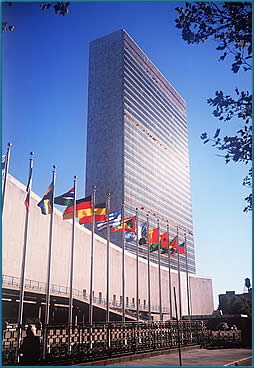World powers ramped up the pressure on Moamer Gaddafi’s regime on Monday, as the United States urged the international community to work together on further steps to end bloodshed in Libya.
During a session of the UN Human Rights Council, US Secretary of State Hillary Clinton, Russian Foreign Minister Sergei Lavrov, EU Chief Diplomat Catherine Ashton as well as counterparts from Britain, Germany, Italy and other countries, discussed steps to deal with what the US envoy called "post Gaddafi" Libya.
"We all need to work together on further steps to hold the Gaddafi government accountable," Clinton told the UN Human Rights Council.
“Nothing is off the table so long as the Libyan government continues to threaten and kill Libyan citizens," she added.
German Foreign Minister Guido Westerwelle called for a 60-day freeze on all
payments into Libya in order to deprive Gaddafi's regime of the means to oppress the Libyan people.
British Foreign Secretary William Hague welcomed the suggestion but insisted that there was a need to implement the measures agreed over the past few days first, claiming they could have a swift impact on violence.
Hague underlined a "remarkable" and "unprecedented" degree of unanimity in the international community.
"We have signalled that crimes will not be condoned…which is a warning to anyone contemplating violations of human rights in Libya or any other country: there will be a day of reckoning."
In the meantime in Brussels, the European Union agreed Monday to implement an assets freeze and travel ban on Libyan leader Moamer Gaddafi and 25 members of his family and inner circle; as well as to ban any supply of arms, ammunition and related materials, in addition to the UN measures.
As mounting diplomatic pressure hemmed in the Libyan leader, Clinton said she was seeking not only a humanitarian response to the aspirations of Libyan people but "a political and civil response as they try to sort through how they're going to organise themselves post-Gaddafi."
According to the New York Times, the United States and European allies are planning to impose a no-fly zone over Libya to prevent the regime from an aerial bombardment of its population.
Australian Foreign Minister Kevin Rudd voiced his support for the plan.
Moreover; when asked whether a no-fly zone over Libya had been discussed with Clinton, Lavrov said: "Absolutely not. It was not mentioned by anyone."
Ashton and Hague warned while such a step was being discussed it had to be drawn up with broad international support.
UN human rights chief Navi Pillay warned the international community that it bore "great responsibility" to swiftly support "in words and deeds" reforms in the Middle East.
She warned that "the threat of violent reprisals against civilians still looms," in Libya, after hundreds were feared killed in the brutal attempts to crush the revolt against Gaddafi.
The UN Security Council voted unanimously on Saturday to impose sanctions and to refer Libya to the International Criminal Court over bloodshed in Kadhafi's bid to crush an uprising.
